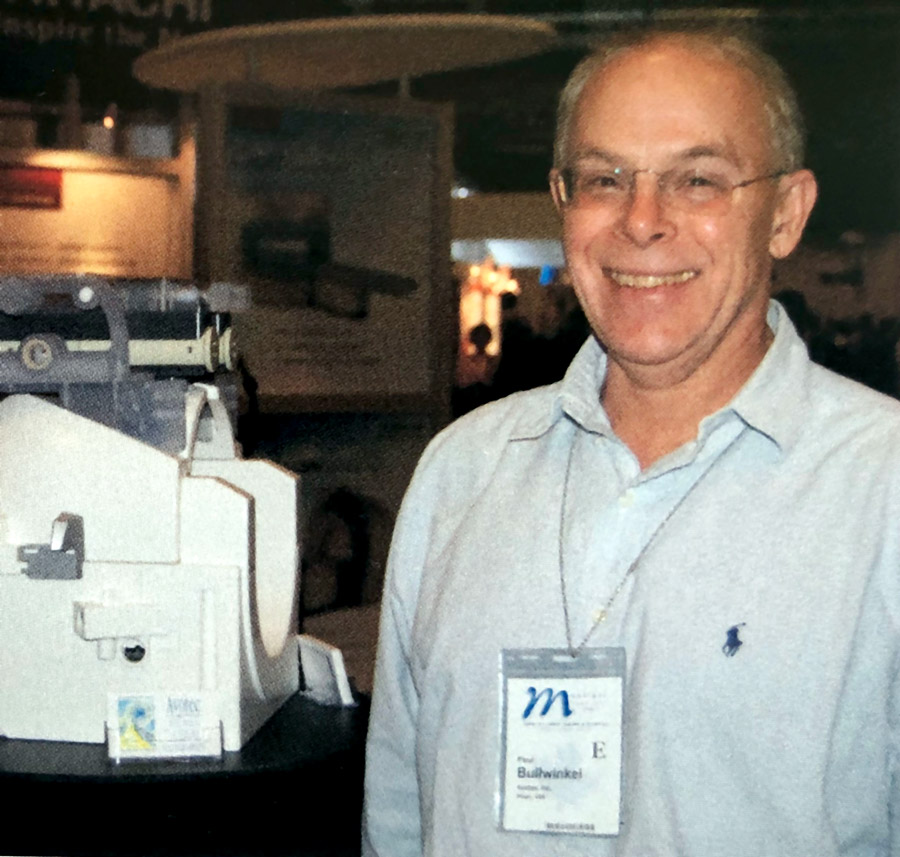Paul E. Bullwinkel, Ph.D.
06 April 1952 – 21 December 2020
 Paul Bullwinkel, founder of Avotec, Inc. and ardent supporter of ISMRM, passed away on December 21st, 2020 after a prolonged battle with cancer.
Paul Bullwinkel, founder of Avotec, Inc. and ardent supporter of ISMRM, passed away on December 21st, 2020 after a prolonged battle with cancer.
Paul was born on April 6th, 1952 in Oakland, California. He grew up in western Massachusetts and attended Northeastern University. He received his Ph.D. in marine acoustics from the University of Miami in 1986.
Paul founded Avotec in 1989 as a company providing MRI compatible sound systems as patient comfort solutions. As technology evolved, so did Paul’s vision of patient comfort in the difficult MRI environment. In 1994, he produced his first integrated MRI compatible audiovisual system. The system provided the capability of allowing patients to have a better MRI experience by viewing movies, music videos, or cartoons (for children).
With the advent of functional MRI in 1992, Paul saw an opportunity to provide sophisticated audiovisual systems to the research community. At the time of his entry into the arena of providing solutions to audiovisual presentation for fMRI research, there weren’t many systems available that were designed for use in MRI, many being borrowed from EEG or PET research, and the reliability and MRI compatibility was highly variable. Paul always took a principled approach to the design of his products, and for almost 20 years marketed a completely passive stereoscopic video presentation system, based on a clever design that had no electronics present in the MRI scanner, yet performed on a par with active systems that suffered from continual problems with image corruption due to the EMI from the active components placed in the bore of the scanner, and even into the RF coils being used.
Paul was always a willing partner with the MR research community and many of his products were the result of collaborations with ISMRM members that became his partners in innovation. His innovations included stereoscopic visual presentation systems, eye tracking systems, and calibrated sound presentation systems.
Paul’s presence at the ISMRM annual meetings, and many study group meetings, will be sorely missed. He was always willing to engage in discussions regarding system design needs and his enthusiastic attitude with regard to quality, thoughtful and intellectually engaged support of research was unusual and much appreciated by all of his ISMRM friends and colleagues.
